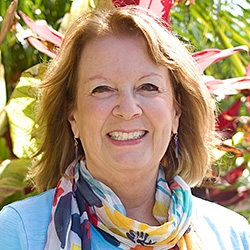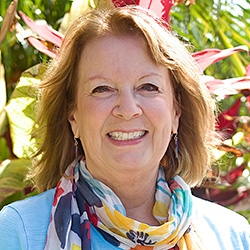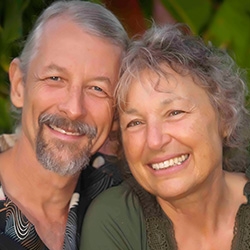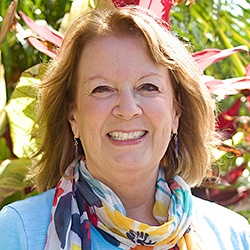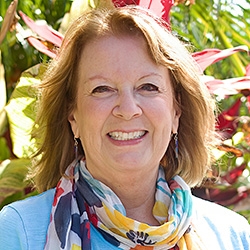
Search Results: habits
-
Inbal responds to the question "Is bribery an acceptable tool for compliance?' and helps us understand the five habitual reasons we do things.
-
Physical distancing is opportunity to creatively to meet your needs in new ways. In this containment, with very few cues from others and the environment you now have a rare opportunity with less external distraction to rethink what's truly supportive -- and make significant changes to the less noticable habits of mind, standards and "should's". Applying questions and noticing certain symptoms can support. Read on for more.
-
The human species is trained and habituated towards separation. This model encourages humans to either give up on their needs or fight for their needs. In this short video, Miki shares how increasing capacity shifts habits of separation and supports holding of all needs. Through intensive lifelong practices we learn to increase our capacity to receive and to increase our capacity to be generous supports our overall capacity to hold all needs.
-
Use these cards in your practice group or NVC training to understand 4 different ways of responding to hard to hear messages. Become aware of the way you habitually respond to stimulus and develop skills to respond with empathy and express honestly.
-
Ever wish you knew how you might experience more choice when you've been triggered, instead of being trapped in old habits and unmet needs? Wish you could REALLY heal old internal messages that tell you you're not good enough… not loveable… or not deserving? Join veteran CNVC Certified Trainer, Mary Mackenzie, for this 6-session course designed to deepen your ability to connect with self and heal your past through the process of Self-empathy.
-
Trainer Tip: We often find ourselves slipping into old behaviors that we would rather change. This is because we don’t have a new plan for responding to the same old situations. In that case, notice whether you are slipping into old behaviors today. Connect to your unmet needs and then identify a new strategy for the situation.
-
The pandemic has unsettled deep patterns of consumption. There’s a fear, and with it comes the mindset that is the heart of rampant consumption; habits which are essential to the market economy’s “economic recovery”. High consumption is also the most direct cause of environmental degradation. What do we need in order to significantly reduce consumption for our greater resilience and freedom, and to increase our planetary and human sustainability?
-
Trainer Tip: Here are some options for tense moments in conversations: try a "redo", understand and recognize your habits, pause to regroup, empathize with the person so they feel heard, check your mind frame before speaking, and name some appreciations about one another.
-
This pandemic is an immense opportunity, and a dire catastrophe in the making. It’s a crisis within many planetary crises — during which, our habits as individuals, and as a collective, are challenged because they don’t sustain us. Now we are pushed to respond freshly and join forces in ways that seemed impossible before.
-
If withdrawal is your stress pattern, you likely want to belong and yet have habits of expression that others find uninviting. Instead, soften, relax, and open your posture and energy. Find something that will bring you to smile. Engage with others -- make eye contact, smile, walk towards others, say hello, and sit in an open posture. Let others know that you're a bit overwhelmed, but want to connect and are glad to be here.
-
How do you build new learning paths and change old practices? Listen as David presents the elements of somatic practice‚ including those that build new learning paths‚ and discover where that learning "sweet spot" is!
-
Many of us blame other people for our feelings but our own state of needs is the true cause. In this powerful audio, Sylvia teaches you how to manage your emotions in challenging situations and demonstrates the process of Screaming in Giraffe.
-
Veteran CNVC Certified Trainer, Sylvia Haskvitz, reviews the key distinctions (sometimes referred to as the key differentiations) in Nonviolent Communication.
-
Listen to Jim and Jori Manske share how we are conditioned to disconnect from our own feelings and how we can unlearn this habit to experience more full and rich inner lives.
-
Trainer Tip: Overwhelmed with all that you want to do? If so, what are you working to change? Is it a behavior or a consciousness? Where were you with this issue when you first decided to create change? And now where are you? Celebrating your progress can encourage you to keep trying. You wouldn’t expect to jump on a treadmill and jog three miles the first time. Don't have the same expectations for your emotional fitness either!
-
Trainer Tip: Identify one goal and take one small step toward achieving it today. It doesn’t matter how much or how often. The reward is in taking the first step, and then the second and third until you’ve attained your goal.
-
Inbal speaks to a group about our habit of demanding something of our children but making it sound like a request, the components of a true request and the importance of being honest when making a demand.
-
For each reactive pattern there is a perceived threat to a tender need. Knowing these tender needs helps us figure out how to interrupt these patterns and creating new ways of perceiving and relating to life. In addition to knowing the need, knowing the healing response and the primary reactive behavior helps with transformation.
-
Worthlessness and shame are linked to the idea of not belonging or being unworthy of belonging -- that is, a deep sense of belonging to life, to your sense of self, and to our earth. Compensatory strategies to win worthiness and belonging arise from here and effectively block the very thing it is pursuing. Transformation occurs when there is a critical mass of clarity about the harm of a particular way of thinking and behaving.
-
Blame is a misguided habit that's used to avoid pain and suffering, offering only a momentary distraction and oversimplifies complex histories. It also disconnects us from choice and agency, blocks us from discovering more about ourselves and others, and can keep us from having compassionate, self responsible conversations. Instead, we can practice speaking in terms of impact and notice our experience without trying to escape it.





